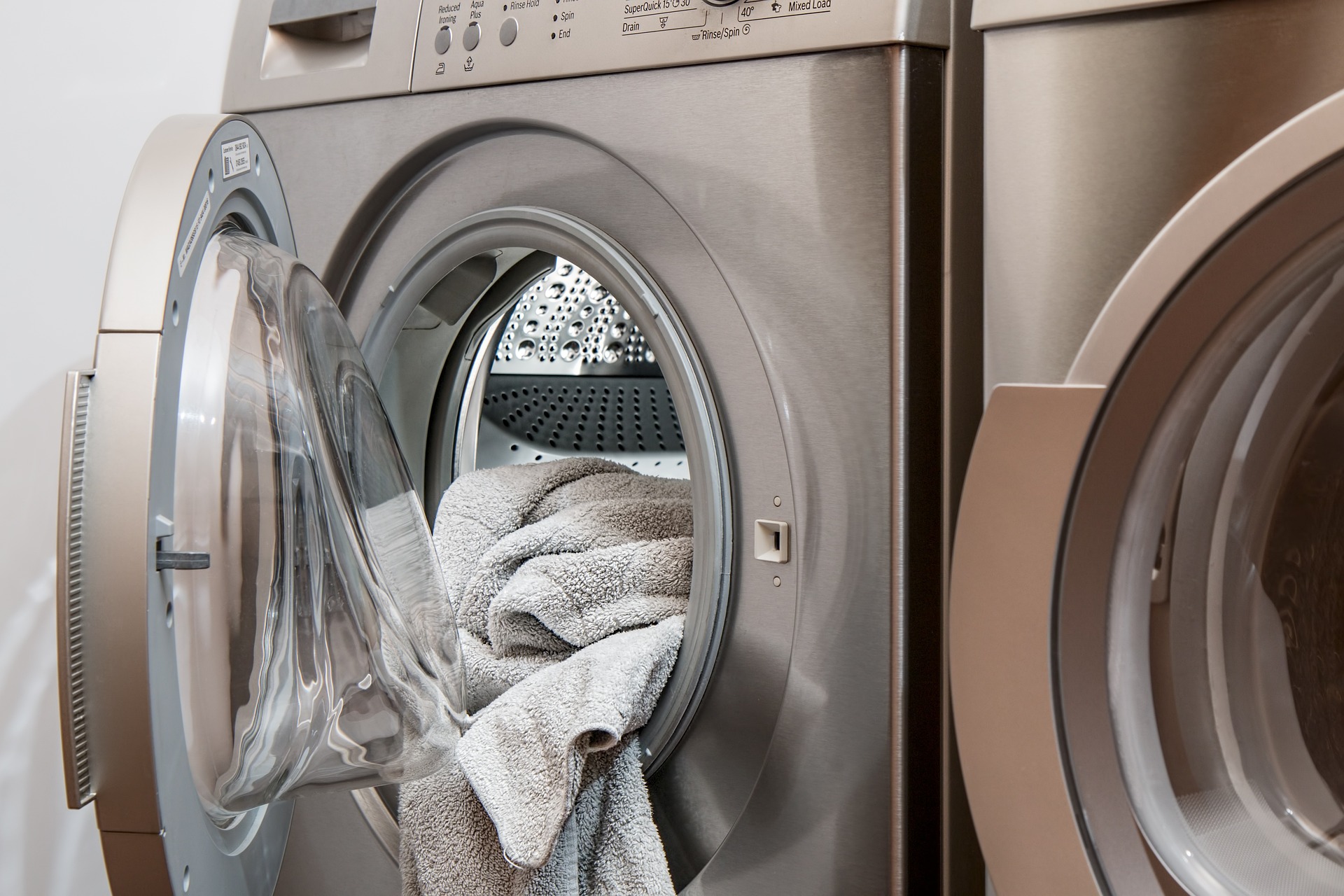
Efficient washing machines
New efficiency standards will help prevent washing machines from needlessly wasting energy and water.
Updated

If you’re like my family, doing laundry is part of your weekly routine. Our washing machines remove stains and odors from clothing, and they are big time-savers in today’s modern life. But inefficient washing machines can needlessly waste a lot of energy and water. That’s bad for the planet and our pocketbooks. Thankfully, in February 2022, the Department of Energy finalized new efficiency requirements for clothes washers that will lower utility bills for consumers and reduce global warming pollution. The updated standards take effect in 2028.
Thanks to these rules, we’ll have cleaner clothes and cleaner air at the same time.Johanna Neumann
Senior Director, Campaign for 100% Renewable Energy

What are the environmental benefits of stronger washing machine efficiency standards?
Updated washing machine efficiency standards reduce energy use and water waste. The new clothes washer standards are expected to prevent 14 million metric tons of carbon dioxide—an amount roughly equivalent to the combined annual emissions of 1.8 million homes according to the Department of Energy.
Not only will many of the machines themselves be more energy efficient, improved clothes washer efficiency will also reduce the amount of energy—electricity or gas—used by water heaters and clothes dryers, since they use less water and because better-spun clothes dry faster.
The proposed standards will also conserve water. With much of the western United States in a water crisis, eliminating needless water waste is critical. Clothes washers currently account for 16% of households’ indoor water use.

What are the consumer benefits of stronger efficiency standards?
- Lower utility bills: Clothes washers that meet the new standards will pay back any higher upfront cost by reducing consumer water and energy bills. The updated standards are expected to save U.S.consumers up to $18 billion over 30 years of sales.
- Renters, in particular, stand to benefit. Stronger efficiency standards are particularly important to reduce utility costs for renters, who rarely get to choose their own appliances. The Department of Energy analysis shows that most renters have clothes washers in their homes, and they are much more likely to be top-loading models, which are generally less efficient. The updated standards will help ensure that landlords buy efficient washers—whether they’re top-loaders or front-loaders—for their rental units.
- Good cleaning, easier on clothes. Testing by the Department of Energy found that top-loading washers meeting the standard can maintain good cleaning performance without increasing cycle time and that efficient top-loading washers reduce wear and tear on clothing in comparison to less efficient machines.
FAQ on efficiency standards
What are efficiency standards?
Efficiency standards specify the minimum energy and/or water efficiency of specific products.
Who created efficiency standards?
The first minimum efficiency standards for many residential and commercial products were created by Congress with the passage of the Energy Policy and Conservation Act of 1975. As a result of this law, national energy efficiency standards for appliances, lighting products and equipment have been saving energy and money, often with little notice.
Since 1987, Congress has established or directed the U.S. Department of Energy to set efficiency standards for more than 55 products. Congress also charged the Department of Energy with periodically reviewing and updating all standards to keep pace with technological change.
Residential clothes washing machines are among the many products for which efficiency standards are required.
How have standards made washing machines more efficient?
The first national efficiency standards for clothes washers were part of the National Appliance Energy Conservation Act, which was adopted by Congress and signed into law by President Reagan in 1987.
Prior to 2022, the Department of Energy had not updated the efficiency standards for clothes washers since 2012.
How has washing machine technology improved since the last efficiency standards went into effect?
Today’s technology allows clothes washers to use less energy and keep clothes clean while helping them last longer compared to technology from a decade ago when these standards were last updated.
Updated efficiency standards ensure that all models take advantage of proven efficiency improvements, such as using an impeller (or “wash plate”) in place of an agitator, increasing spin speeds, using a more efficient motor, and reducing the amount of water consumed.
While some top-loaders today use impellers, many still use old-fashioned agitators that require more energy and water and generally don’t clean clothes as well. These outdated models don’t spin out rinse water as thoroughly, requiring a clothes dryer to run longer and use more energy compared to top-loaders with impellers.
Who opposes efficiency standards?
Unfortunately, not everyone supports energy efficiency standards. Anti-regulatory groups oppose standards on principle and some appliance manufacturers who want to be able to keep selling less efficient equipment are opposed as well.

Citizen’s Guide to Reducing Energy Waste
Topics
Authors
Johanna Neumann
Senior Director, Campaign for 100% Renewable Energy, Environment America Research & Policy Center
Johanna directs strategy and staff for Environment America's energy campaigns at the local, state and national level. In her prior positions, she led the campaign to ban smoking in all Maryland workplaces, helped stop the construction of a new nuclear reactor on the shores of the Chesapeake Bay and helped build the support necessary to pass the EmPOWER Maryland Act, which set a goal of reducing the state’s per capita electricity use by 15 percent. She also currently serves on the board of Community Action Works. Johanna lives in Amherst, Massachusetts, with her family, where she enjoys growing dahlias, biking and the occasional game of goaltimate.
Matt Casale
Former Director, Environment Campaigns, PIRG
Find Out More

Advocates urge action on appliance efficiency

Energy-efficient windows and doors: How federal tax credits can help you install them

Alaska Environment’s 2024 Priorities



